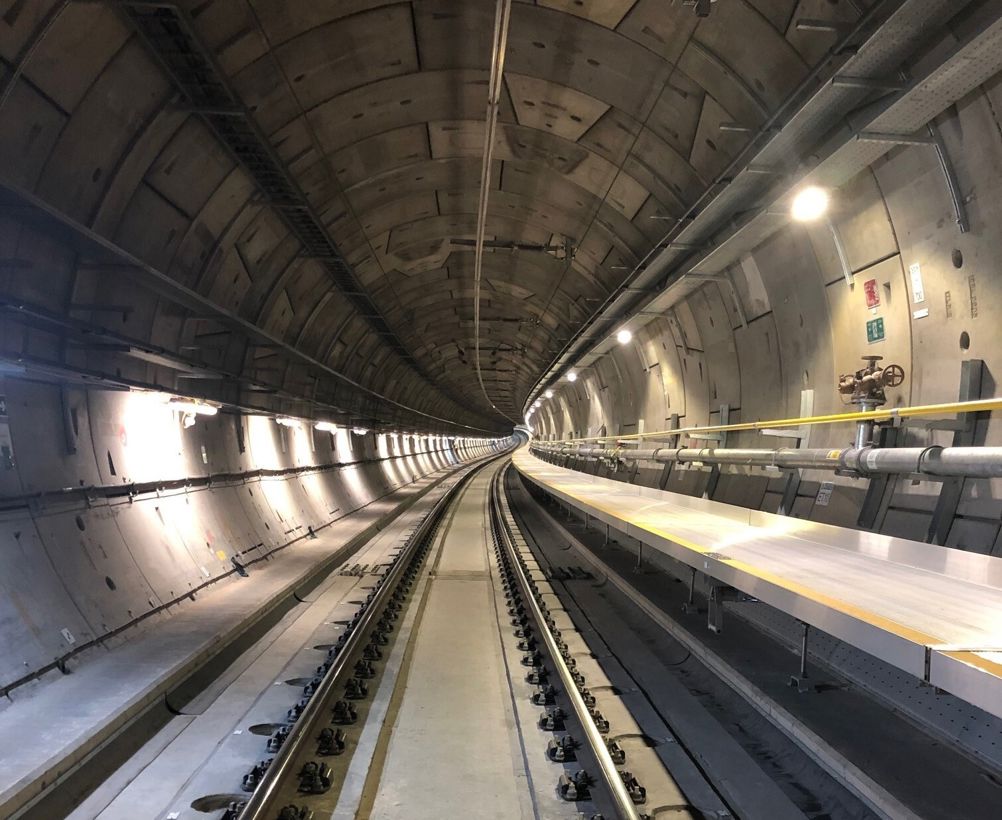In the UK, the civil and structural engineering sector plays a vital role in the nation's economy and infrastructure. It is a dynamic industry that encompasses a wide range of disciplines, from the design and construction of buildings to the management of large-scale infrastructure projects.
The sector drives over £100 billion in annual output while employing more than 1.6 million people, and its companies range from global consultancies like Arup and Atkins Réalis to specialist contractors focused on areas such as green energy, urban development, and public infrastructure projects.
Key Trends Driving Developments in the Sector
The civil and structural engineering sector is evolving rapidly, influenced by societal needs, technological advancements, and environmental priorities. Key trends shaping the industry include:
Sustainability and Net-Zero Goals
The UK government has committed to achieving net-zero carbon emissions by 2050, placing sustainability at the forefront of construction and engineering.
This has led to: increased use of sustainable materials like cross-laminated timber (CLT) and recycled steel; integration of renewable energy solutions into building designs; and a focus on retrofitting existing infrastructure to improve energy efficiency.
Digital Transformation
Technological advancements are revolutionising how projects are designed, managed, and constructed. Key innovations include:
Building Information Modelling (BIM): Enhancing collaboration by creating detailed digital representations of projects.
Artificial Intelligence (AI) and Machine Learning: Used for predictive maintenance, resource allocation, and optimising designs.
Drones and Robotics: Supporting site surveys, inspections, and automated construction tasks.
Resilience and Adaptation to Climate Change
With extreme weather events becoming more frequent, engineers are focusing on designing resilient structures and infrastructure. This includes flood defences, adaptable urban planning, and robust transportation networks.

Urbanisation and Smart Cities
The growth of urban populations has driven demand for innovative urban planning. Engineers are playing a key role in developing smart cities that leverage technology to improve transportation, energy management, and public services.
Modular and Offsite Construction
To improve efficiency, reduce costs, and minimise waste, modular construction is gaining popularity. Components are built offsite in controlled environments and then assembled on location.
Types of Organisations in the Sector
Structural Engineering Firms: These companies focus on designing safe and efficient structures, including buildings, bridges, and towers. Examples include Arup and Buro Happold.
Civil Engineering Firms: These companies, like Atkins Réalis, handle large-scale infrastructure projects, such as roads, railways, water systems, and airports.
Environmental Engineering Firms: These firms prioritise sustainability, dealing with waste management, renewable energy projects, and environmental impact assessments. Notable players include WSP and RSK Group.
Construction Companies: These businesses, such as Balfour Beatty and Kier Group, execute the construction phase of projects, often working closely with civil and structural engineers.
Specialist Subcontractors and Consultants: Smaller companies or niche firms focus on specific areas like geotechnical engineering, materials science, or façade design.
Iconic and Groundbreaking Projects in the UK
The UK is home to some of the world’s most ambitious and innovative engineering projects, showcasing the breadth and depth of the sector. Notable examples include:
Thames Tideway Tunnel
Dubbed “London’s new super sewer,” this 25-kilometer tunnel aims to prevent sewage overflow into the Thames. The project highlights cutting-edge engineering solutions to address urban environmental challenges.

Crossrail (Elizabeth Line)
This 118-kilometer railway line across London exemplifies innovation in tunnelling and urban infrastructure. Opened in 2022, it is a testament to modern engineering capabilities.
Hinkley Point C
The first new nuclear power station in the UK in a generation, Hinkley Point C represents a significant step in securing low-carbon energy for the future. Its construction involves intricate structural and civil engineering.
Eden Project Morecambe
Previously known as Eden Project North, this sustainable development in Morecambe Bay focuses on environmental education and eco-tourism, combining innovative design with ecological sensitivity.
Career Opportunities for Engineering Graduates
Civil and structural engineering offers a wide range of career paths for graduates, each providing opportunities to make a tangible impact on society. Some of the roles and areas of work include:
Structural Engineer
Structural engineers design and assess buildings, bridges, and other structures to ensure they are safe, functional, and aesthetically pleasing. Graduates often start as junior engineers, working on calculations, designs, and site visits.
Civil Engineer
Civil engineers are involved in planning, designing, and overseeing infrastructure projects. They often work on roads, railways, water supply systems, and airports, for instance. Roles may include project management or technical design.
Geotechnical Engineer
These specialists focus on the behaviour of soil and rock to ensure the stability of foundations and structures. Their work is essential for projects like tunnels, dams, and retaining walls.

Environmental Engineer
Environmental engineers address sustainability challenges, such as reducing emissions, improving waste management, and assessing environmental impacts. They often collaborate on renewable energy and conservation projects.
Transport Engineer
Transport engineers design and maintain transportation systems, from roads and bridges to public transit networks. Their work often involves traffic modelling and improving connectivity.
Project Manager
Graduates with strong organisational and leadership skills may gravitate towards project management, where they oversee timelines, budgets, and stakeholder communication.
Research and Development (R&D)
Some graduates choose to specialise in R&D, focusing on developing new materials, construction methods, or digital tools to advance the industry.
Consultancy Roles
Engineering consultancies provide advisory services on technical, environmental, or regulatory aspects of projects. Graduates may work in multidisciplinary teams to solve complex challenges.
More Sector Guides
Pathways into the Sector
There are several routes into the civil and structural engineering sector:
Graduate Schemes: Many large companies offer structured graduate programs that provide hands-on experience, mentoring, and professional development opportunities.
Chartered Status: Achieving professional accreditation through institutions like the Institution of Civil Engineers (ICE) or the Institution of Structural Engineers (IStructE) can enhance career prospects.
Internships and Placements: Gaining practical experience during university is highly valued by employers and can often lead to full-time roles.
Further Study: Pursuing a master’s degree or specialised certification can help graduates develop expertise in niche areas, such as environmental engineering or advanced structural analysis.
The UK civil and structural engineering sector is a diverse and rewarding field with opportunities to shape the future of infrastructure and sustainability. By addressing pressing challenges like climate change, urbanisation, and technological innovation, engineers in this sector have a unique chance to leave a lasting impact on society. For university students and recent graduates, the sector offers a variety of career paths, cutting-edge projects, and opportunities for personal and professional growth.
The Student Engineer is a special channel of The Engineer aimed at educating and inspiring engineering undergraduates about the career opportunities in engineering and also offering practical advice on how they can access these opportunities.











Guest blog: exploring opportunities for hydrogen combustion engines
"We wouldn't need to pillage the environment for the rare metals for batteries, magnets, or catalisers". Batteries don't use rare...